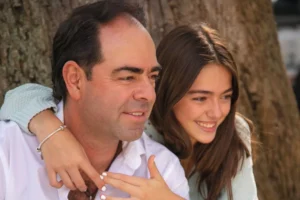***Caution to sensitive readers: This article discusses several child abuse cases.***
I don’t remember all the names of the children whose cases I’ve handled in my career as a child abuse prosecutor. There are, though, myriad images that haunt me.
The image of a girl who when asked how she broke her collar bone, took a doll and flung it across the room with all her might. “That,” she said, “is what Daddy did to me.”
The image of a young man who when asked how he could be sure he was 12 the first time his father sold him as a prostitute responded simply, “You never forget the day your childhood ends.”
The image of a girl who entered a crowded courtroom only to see multiple church elders and both her pastors lined up to support the father who sodomized her. Upon witnessing this spectacle, the girl tugged on my suit and whispered in my ear, “Does this mean that God is against me, too?”
These children and a million more like them are the shadow children of our country. Boys and girls, young and younger, who from the corners of their rooms ask, “Is it safe to come out now?”
For many abused children, though, there is a deeper question, a question reflected in the words of the girl wondering if God was against her. This girl and so many others within the faith community are asking, “Is it safe to go back to church?” Maybe you’re also asking this question.
Spiritual Injuries
If you are a survivor of abuse who has been spiritually hurt and is reluctant, even afraid to return to church, you are not alone. According to dozens of studies involving more than 19,000 abused children, a large number of maltreated children have not only been injured physically and emotionally, but also spiritually.[note]Donald F. Walker, et al, Changes in Personal Religion/Spirituality During and After Childhood Abuse: A Review and Synthesis, 1(2) Psychological Trauma: Theory, Research, Practice & Policy 130-145 (2009).[/note] This may happen because religion was incorporated into the abuse of a child.
In one case, for example, a girl protested that her father’s sexual touching was sinful. Her father, a protestant minister, retorted that incest is normally wrong — but that God makes exceptions. After all, when it was only Adam and Eve, incest was essential to populate the earth. Similarly, incest was necessary after the great flood. The minister contended that God had appeared to him in a dream and revealed this was also a special time in which incest was allowed within the church to grow God’s people. When religion is used in this way, a person may become angry with the church and God, and simply walk away from organized religion.[note]Barbara R. McLaughlin, Devastated Spirituality: The Impact of Clergy Sexual Abuse on the Survivor’s Relationship with God, 1(2) Sexual Addiction & Compulsivity (1994); Victor I. Vieth, When Faith Hurts: Overcoming Spirituality-Based Blocks and Problems, 2(10) Centerpiece 1-6 (2010).[/note]
In other cases, a spiritual injury may result because of unanswered questions. A child may have prayed that the abuse stop and wonders why a God who can part seas and raise the dead chooses not to stop beatings, rapes, starvation and other atrocities.
Many survivors of abuse report that when they have reached out to clergy or spiritual leaders, they are ignored or even further abused by the very people from whom they seek protection. I once spoke with a man whose father beat him and regarded the proverb “spare the rod” as his personal life verse and a license to cause lasting physical and emotional damage.
What most troubled this man, though, was the response of his pastor. He said he tried to explain his childhood to his pastor only to be told he needed to focus primarily on his own sinful inability to forgive and forget.
Yet like physical and emotional injuries, with time, spiritual injuries can heal as well. When survivors are able to find a meaningful spiritual connection, studies find they also cope better physically and emotionally.[note]Thema Bryant-Davis, et al, Religiosity, Spirituality, and Trauma Recovery in the Lives of Children and Adolescents, 43(4) Professional Psychology: Research & Practice 306-314 (2012).[/note]
If you’re struggling with the question of whether or not to return to church, you may want to speak with a mental health professional well versed in the dynamics of child abuse and the impact of maltreatment on spirituality. If you have someone in your faith community you can trust, this person may also be able to guide you.
Returning to Church
Adult survivors who have returned to church often tell me they followed two simple rules: avoid churches that hurt and seek churches that help.
One survivor of sexual abuse told me she had repeatedly tried to kill herself, and each time, her pastor told her that her inability to forgive her father was causing her sadness. He also told her that, unless she repented, she would eventually succeed in killing herself and would certainly go to hell. With the help of a friend, the woman eventually recognized the cruelty in her pastor’s response.
Not only did this woman stop seeking her pastor’s advice, she found a new church home with a pastor who was sensitive to her pain, was willing to walk through dark valleys with her, and was willing to coordinate his spiritual counseling with the work of her medical and mental health providers. Without this pastor, the woman told me, she would have died.
In finding a church sensitive to your needs as an abuse survivor, it may be helpful to ask about a church’s child protection policies and the child abuse training received by its called workers. If a church is proactive in training its staff and developing policies to protect children from abuse, they may also be sensitive to the needs of adults who were abused as children.
One survivor told me she had avoided the church for a quarter of a century until, one day, she felt God was telling her, “I didn’t hurt you. It was evil men who used My name. It’s time to come back.” She said she didn’t know what to do with this experience, so she ripped from her Yellow Pages the address of every church in her community.
The woman drove to a church and asked the pastor to show her their child protection policy. If the pastor couldn’t produce one, she moved on. If the pastor produced a poor policy, she walked away. After visiting more than 20 churches, she finally met a pastor who told her the church developed their policy working with local child protection professionals and that the policy was accompanied by annual training for all their workers. The church had reported cases of abuse, the pastor had preached against the sin of abuse, and the church was involved with community child abuse prevention programs. This was the church the woman chose — the church she found most welcoming to children who are hurting.
Once you have found a church sensitive to the needs of abused children, you may want to inquire as to their sensitivity and abilities in responding to the spiritual needs of adults impacted by abuse. The following questions and suggestions may be helpful:
1. Is the pastor familiar with the research on the spiritual impact of child abuse?
If not, is the pastor willing to get caught up to speed to better understand and address the needs of survivors?
2. Is the pastor compassionate in meeting the needs of a survivor abused in the name of religion?
In one case, a girl was repeatedly sexually abused while her offender hummed a certain hymn. As a woman, she said she wanted to go to church but was scared she would hear the same hymn, be reminded of the abuse, and lose control of her emotions in front of the congregation. In hearing this, the pastor promised not to play the hymn during services. Churches that display this sort of kindness are best suited to meet the spiritual needs of survivors.
3. When admitting convicted sex offenders into a congregation, is the church sensitive to the potential emotional impact on survivors?
Recognizing that survivors may struggle when attending services with convicted sex offenders, some churches limit the services offenders can attend and otherwise act to ease the pain of those who may have been abused. If an offender is in the same congregation with his or her victim, many churches ask the offender to find another place of worship as a fruit of their repentance.
4. If need be, will the church work in tandem with your medical and mental health professionals?
When a parishioner has cancer, pastors do not typically interfere with a doctor’s medical treatment. When, however, the parishioner is a child abuse victim, some survivors have encountered pastors who question their medical and mental health treatment.
One survivor, for example, told me her pastor instructed her not to take medication for depression, telling her that only God could heal her mental illness. The victim listened to her pastor and shortly thereafter attempted suicide. She eventually found a pastor willing to work with her medical and mental health team, and not against them. There is a growing body of evidence that when faith leaders work with medical and mental health professionals, a victim is more likely to recover physically, emotionally and spiritually. This is the sort of church survivors should seek.
Finding Comfort
Jesus scolded His disciples for keeping children away from Him and issued harsh warnings to anyone who would hurt a child (Luke 18:15-17; Luke 17:2). Christ’s admonitions also apply to those who may have used religion to abuse you or who failed to reach out to you in love once abuse was discovered.
One survivor told me she decided to find a church home when she realized how much Jesus was on her side and the side of every child who suffers. This survivor reminded me that Jesus was the descendent of a sexually exploited woman (Joshua 2, 6:22-25; Hebrews 11:31; Matthew 1:5) and was frequently seen in the company of other sexually exploited women as He promised not only His help, but the very kingdom of God (Matthew 21:31). She went on to say she found comfort in praying to a God who was himself beaten, mocked and stripped of His clothes.
Dietrich Bonhoeffer said,
“God comes to people who have nothing but room for God — and this hollow space, this emptiness in people is called in Christian speech, faith.”[note]Dietrich Bonhoeffer, A Testament to Freedom: The Essential Writings of Dietrich Bonhoeffer 52 (1995).[/note]
The same God who fills our emptiness with faith, who stands with survivors in the darkest corners, has also walked with survivors in the long road back to the company of believers.
If you are ready to make this journey, I pray this article will help you in taking the next step.
Editor’s Note: To talk to a Christian counselor or get a referral to a counselor in your area, go to Boundless.org/Counseling
Copyright 2014 Gundersen Health System. All rights reserved.











